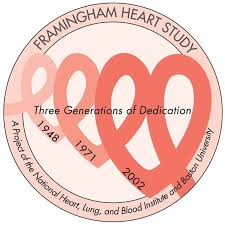[broadstreet zone=”59947″]
FRAMINGHAM – The National Institutes of Health has awarded a 5-year, $26.56 million grant to Boston University researchers for the Framingham Heart Study Brain Aging Program (FHS-BAP).
The greant will help researchers to continue the surveillance and evaluation of the Framingham Heart Study participants for dementia (including cognitive assessments and brain imaging) and invigorate the Framingham Heart Study brain donation program and brain bank.
The program will also establish a platform to promote data sharing that will accelerate Alzheimer’s disease research using heart study data and conduct three interrelated projects using heart study data and specimen resources.
Since 1976, the Framingham Heart Study – the longest running multi-generational epidemiological study in the world – has followed participants for incident dementia.
The findings have helped to analyze the differences between normal, age-related changes in thinking and disease-related pathological alterations.

In addition, the inclusion of many of the original participants’ children and grandchildren (known as the second- and third-generation cohorts) has also provided an opportunity to explore genetic factors related to Alzheimer’s disease (AD) and vascular dementia
Lindsay Farrer, PhD, chief of biomedical genetics at Boston University School of Medicine (BUSM), is one of two principal investigators of the award and will lead the research.
“The primary goal of this new program is to continue dementia surveillance, bring added resources to the brain donation program including neuropathological examination to identify new and expand on known AD-related genetic and other risk factors and biomarkers and to pursue innovative research about the vascular and inflammatory basis of AD,” he explains.
The FHS-BAP will feature three inter-related projects that focus on vascular and inflammatory contributors to Alzheimer’s disease.
[broadstreet zone=”59946″]
One project will identify factors that are associated with Alzheimer’s disease risk and resilience using longitudinal analyses of FHS data including various genetic, clinical, imaging, lifestyle and other traits.
A second project will investigate the link between Alzheimer’s disease genetic vulnerabilities and chronic inflammation.
A third project will study the impact of variants in genes affecting immune function on Alzheimer’s disease-related brain changes and cognitive performance.
All of the projects will leverage the unique features of this family-based cohort and up to 70 years of follow-up data collected from study participants.
[broadstreet zone=”59945″]
Rhoda Au, PhD, professor of anatomy & neurobiology, neurology and epidemiology at BUSM and BU School of Public Health (BUSPH), who is also a principal investigator and will coordinate research participant engagement in this program, noted that “FHS-BAP investigators will apply inter-disciplinary approaches that maximize use of a wide array of clinical, lifestyle, biomarker and ‘omic information collected from three generations of FHS participants over the course of their adult lives to develop strategies that preserve cognition and memory and to identify novel therapeutic targets.”
Finally, “this program will promote using FHS-BAP data, especially by early-stage and investigators nor currently working in the Alzheimer’s disease field using a pilot projects program and through enhanced and proactive data sharing efforts,” added Farrer who is also a BU Distinguished professor of genetics as well as a professor of medicine, neurology, ophthalmology, epidemiology and biostatistics at BUSM and BUSPH.

Farrer’s research has led to more than 450 publications on genetic risk factors for several familial neurodegenerative and other chronic diseases. In collaboration with other laboratories worldwide, his group has identified genes and delineated mechanisms causing a variety of rare and common disorders including Alzheimer’s disease, age-related macular degeneration, substance use disorders, Wilson disease, Machado-Joseph disease, Waardenburg syndrome, and hypertension.
The Framingham Heart Study has had a major impact on public health by establishing links between cholesterol and heart disease, blood pressure and stroke, as well as precursors to a variety of other diseases of the elderly.
[broadstreet zone=”58893″]
***
Portions of this report were a press release from BU and NIH

